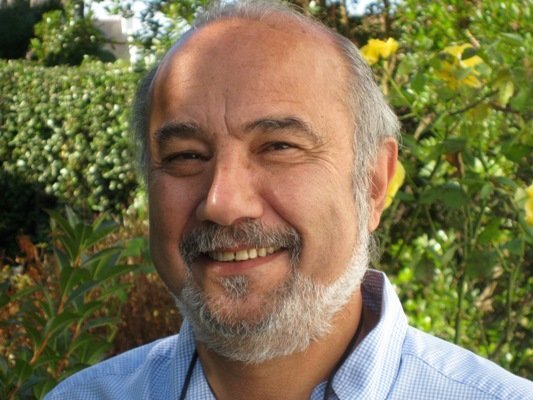MBS does not have an honest bone in his body: GWU professor

TEHRAN – A professor from the George Washington University says Saudi Crown Prince Mohammed bin Salman is not honest when he talks about reforms.
“MBS does not have an honest bone in his body,” Hossein Askari tells the Tehran Times.
“He thinks that he benefits from chaos in the region. It weakens his enemies. And he can better ride the turmoil,” the professor notes.
While bin Salman had pledged to introduce new reforms to ensure Saudi citizens to enjoy basic human rights, freedom of expression, the right to establish associations or assemblies, as well as an independent judiciary, Saudi authorities are continuing to jail and execute opponents.
Meanwhile, the Biden administration has approved a $650m sale of air-to-air missiles to Saudi Arabia. He was expected to take harsher measures against the Saudi kingdom over human rights files.
“People see him (MBS) as a strong leader to restore stability. It motivates the U.S. to keep forces in the region and not pivot too fast to South East Asia,” Askari argues.
“It weakens financially-strapped Iran that has to spend valuable resources on defense, intelligence and support for allies.”
Following is the text of the interview:
Biden had pledged during his election campaigns to pressure Saudi authorities for violation of human rights. But his administration has approved a $650m sale of air-to-air missiles with Saudi Arabia. How do you see this contradiction?
Washington is full of contradictions and politicians hardly ever do what they say. Money is all that matters in the United States. Politicians need money to run their campaigns. So the promise of a campaign donation from a defense contractor carries a great deal of weight. Also the jobs that may be created as a result of arms sales in a region where a president needs votes gets the attention of politicians. In the case of MBS, just look at the public disgust about his crimes expressed by American CEOs and their refusal to participate in Saudi Arabia. But then just a few months later they are all running to Riyadh. Please don’t underestimate the role of money in the United States and don’t overestimate the importance of morality and decency. Morality plays no role in the conduct of American foreign policy. America has truly lost its moral compass. Hypocrisy is the trait of U.S. politicians.
“MBS thinks that he benefits from chaos in the region. It weakens his enemies, And he can better ride turmoil.”How could Saudi Arabia strengthen its lobbies in the U.S. to push American authorities to turn a blind eye on its domestic and regional policies that promote extremism?
Easy. Saudi Arabia uses the two weapons that best work in the United States. They are good at lobbying, only second to the Israelis. They employ a number of ex-U.S. officials as ‘consultants,’ but really lobbyists with high annual retainers that could run into the millions of dollars. Former cabinet members, congressmen, governors, CEOs, and military leaders. These folks can move mountains for Saudi Arabia in Washington. But on top of this, the large Saudi contracts to defense contractors, oil companies and the like win them support. Second, they have learned an important lesson about getting things done in the U.S. That is the power of the Israeli lobby. So they have been quietly partnering with Israel and lobbying against Iran, the country that Israel wants isolated and demonized.
Do you think MBS is honest when he talks about campaign against extremism while he has put a bunch of Saudi activists in jail?
Absolutely not. MBS does not have an honest bone in his body. He thinks that he benefits from chaos in the region. It weakens his enemies. And he can better ride turmoil. People see him as a strong leader to restore stability. It motivates the U.S. to keep forces in the region and not pivot too fast to South East Asia. It weakens financially-strapped Iran that has to spend valuable resources on defense, intelligence, and support for allies.
What are the main challenges and opportunities of Saudi-Iranian talks to restore diplomatic ties?
Trust. The al-Sauds don’t trust the clerics who run Iran, Iran’s political system, Shia Muslims, and indeed Iranians. So this is a challenge that will be hard to overcome. I know this from experience. Moreover, there is a built-in resentment of Iran’s history, culture and Shiism. It is tough to negotiate with a party that is jealous of you and does not trust you at all.
What are the fallouts of war on Yemen for the region?
First and foremost is the human tragedy that continues today. The thousands that have died and injured. The millions that are homeless. The economic damage to a country that was already poor. Yet, I don’t believe that there will be a rush by Arabs to help rebuild Yemen. Yemen will continue to suffer. Second, there will be on and off border clashes between Saudi Arabia and Yemen. The PGCC will change. Increasingly, Qatar and even Oman will keep a distance from Saudi Arabia. At the core will be Saudi Arabia and Bahrain along with Kuwait and the UAE. Third, there will be a re-alignment of allies in the region. The UAE will be more distanced from MBS. Fourth, MBS will see Iran as a continued threat and not to be trusted. MBS will buy even more sophisticated arms and engage U.S. mercenaries and maybe even Israelis to train its military, triggering a new arms race in the region. I think that Israel will have a bigger presence in the Persian Gulf. Iran will have little choice but to get closer and closer to China. The future is not bright!
Leave a Comment